The time of year has arrived when the number of cyclists on the road has dwindled. Just a couple of months ago there would have been 3-5 bikes per car on the train to and from Seattle. Now the only competition for a spot for my bike on the train is someone standing or sitting in the bike area that I have to kick out of the space. All of the fair weather cyclists have stopped commuting because it is either too cold or too wet. Only the brave (some may say crazy) few remain. It's the time of year when people make comments like "You must be cold!" or ask questions like, "How do you stay dry?" Well, "no, I'm not" and "just wear the right stuff".
Earlier this week it was FREEZING!! The temp on my phone said it was 28 one day! When it's not raining I'm reminded that I do live in a northern state. How do I not get cold? Layers if thermal cycling gear help along with pedaling hard and building up body heat. I actually am warmer and dryer than walking to the bus stop with an umbrella. So I usually look at everyone at the train station and think the same thing about them as they think about me.
Earlier this week it was FREEZING!! The temp on my phone said it was 28 one day! When it's not raining I'm reminded that I do live in a northern state. How do I not get cold? Layers if thermal cycling gear help along with pedaling hard and building up body heat. I actually am warmer and dryer than walking to the bus stop with an umbrella. So I usually look at everyone at the train station and think the same thing about them as they think about me.
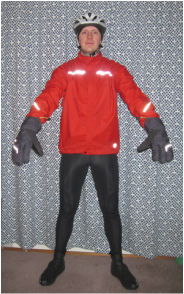
Starting with the top layer:
Bike helmet. It is surprising that an average helmet can keep the majority of rain out.
Waterproof jacket. Pretty wind resistant as well, so the cold air can't cut through.
Thermal waterproof cycling gloves. Hands stay toasty and dry.
AmFib thermal tights. These are AMAZING! My legs have never been cold in these. Not even when I had to wade through 3 feet of water in 40 degree weather. They're like a wet suit material.
Neoprene shoe covers. Excellent for protection from the rain, but also add another layer of warmth by blocking the mesh vents in my shoes.
Bike helmet. It is surprising that an average helmet can keep the majority of rain out.
Waterproof jacket. Pretty wind resistant as well, so the cold air can't cut through.
Thermal waterproof cycling gloves. Hands stay toasty and dry.
AmFib thermal tights. These are AMAZING! My legs have never been cold in these. Not even when I had to wade through 3 feet of water in 40 degree weather. They're like a wet suit material.
Neoprene shoe covers. Excellent for protection from the rain, but also add another layer of warmth by blocking the mesh vents in my shoes.
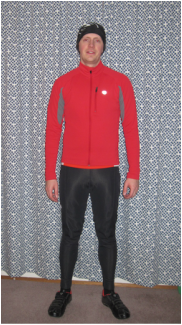
Next layer:
Cycling cap. Just a basic polyester cap. It's not thermal but completely covers my ears.
Thermal bike jersey. Very warm. I'll only break it out when temps are below 50 for short rides, for longer rides it is too warm unless it is in the low 40's or below.
Cycling shoes. Don't add any value for staying warm.
Cycling cap. Just a basic polyester cap. It's not thermal but completely covers my ears.
Thermal bike jersey. Very warm. I'll only break it out when temps are below 50 for short rides, for longer rides it is too warm unless it is in the low 40's or below.
Cycling shoes. Don't add any value for staying warm.
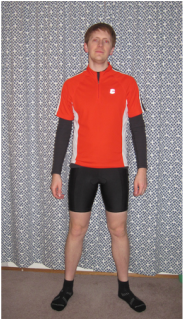
The last layer:
My hair. If I was bald I'm sure I would be colder.
Cycling jersey. Not really needed. I used to not wear this on really cold mornings, but I put my ORCA card in the back pocket which is conveniently the same height as the card scanner.
Thermal base layer.
Cycling Shorts.
SmartWool socks. Very warm socks. I've heard from other riders they are even warm when wet, though with my new shoe covers I have not had to experience that.
My hair. If I was bald I'm sure I would be colder.
Cycling jersey. Not really needed. I used to not wear this on really cold mornings, but I put my ORCA card in the back pocket which is conveniently the same height as the card scanner.
Thermal base layer.
Cycling Shorts.
SmartWool socks. Very warm socks. I've heard from other riders they are even warm when wet, though with my new shoe covers I have not had to experience that.
Not counting the basics (helmet, jersey, shorts, and shoes) all this will set you back over $400, so it's not something most people can go out and buy all at once. I've built up over the few years when I started with just jeans, waterproof rain pants, long sleeve shirts and a water resistant jacket. I also had no fenders that first winter in Eugene. Looking back, I WAS crazy.
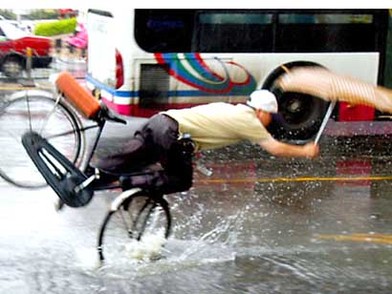
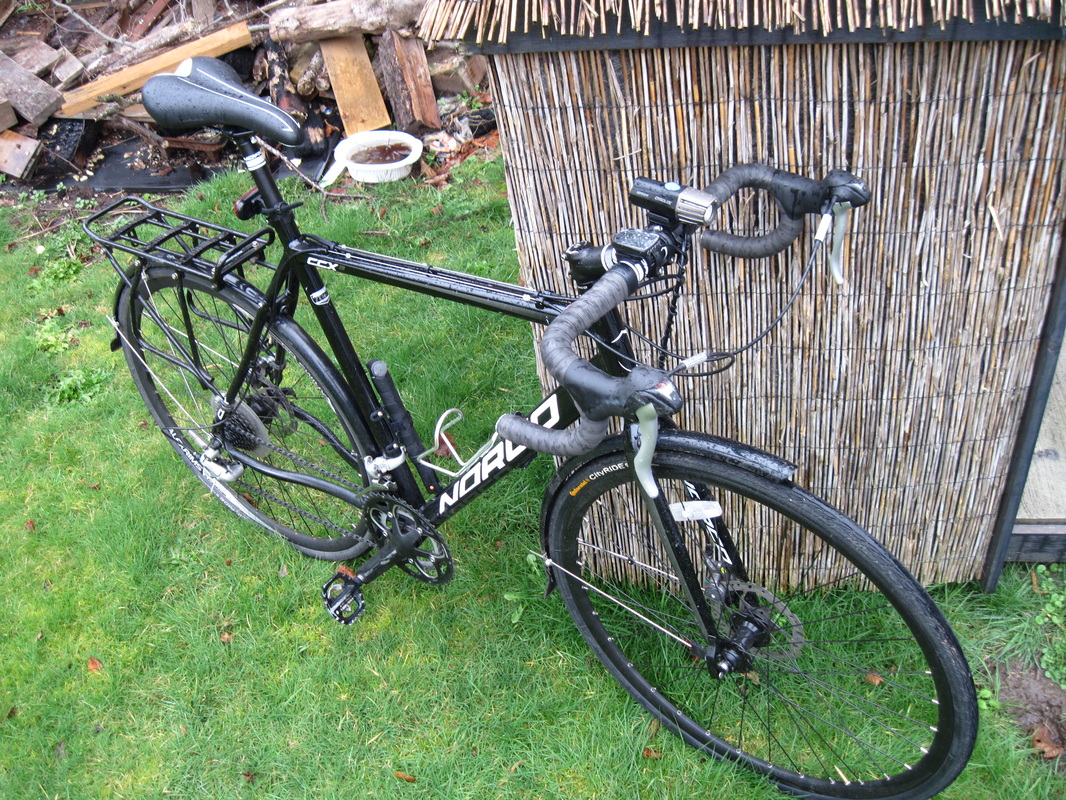
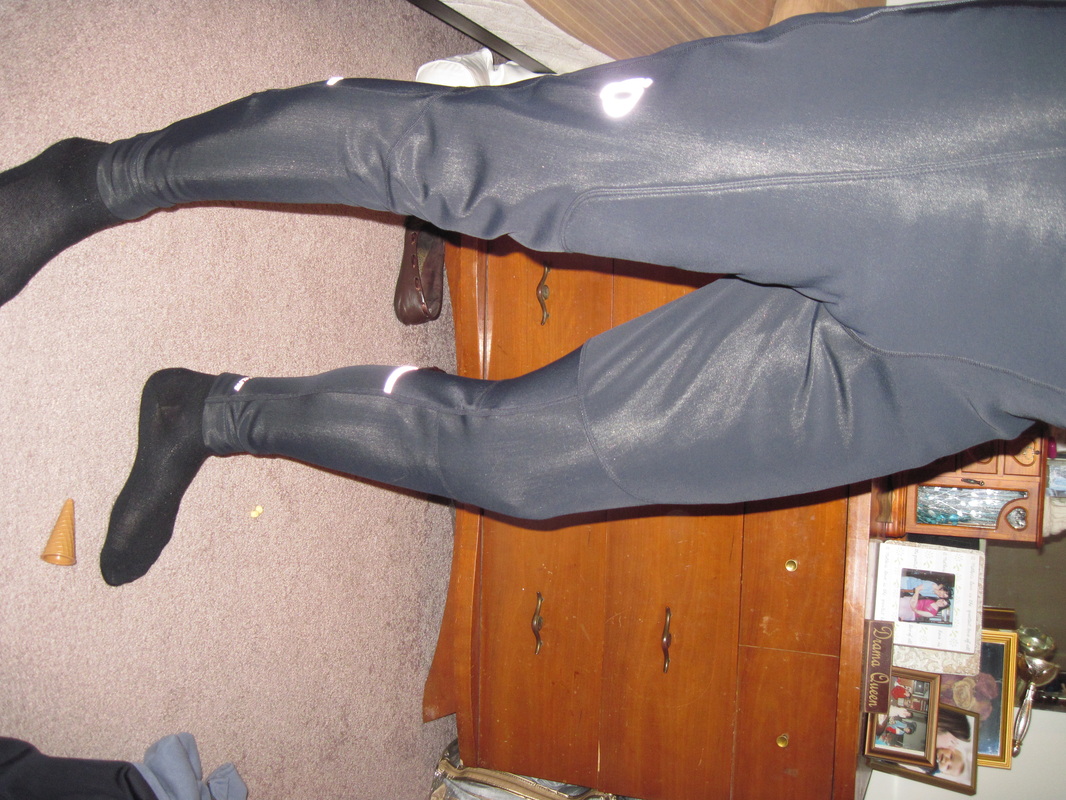
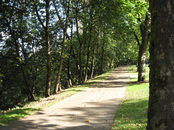

 RSS Feed
RSS Feed